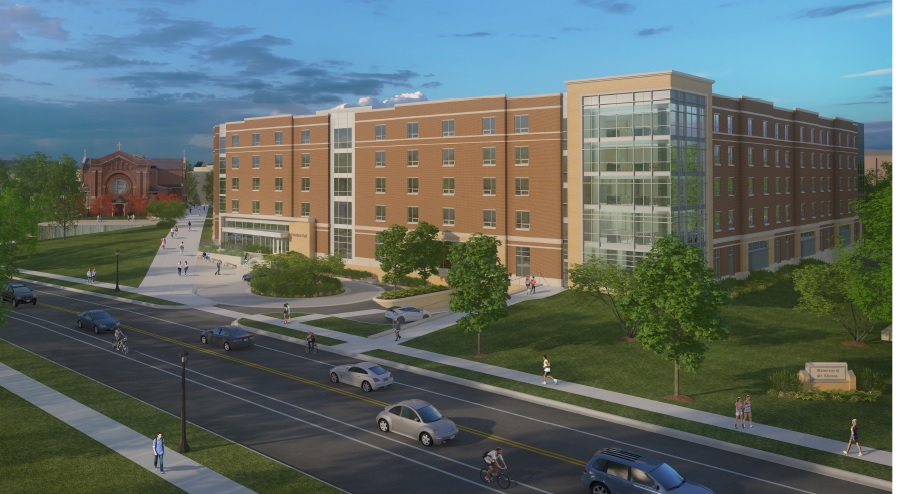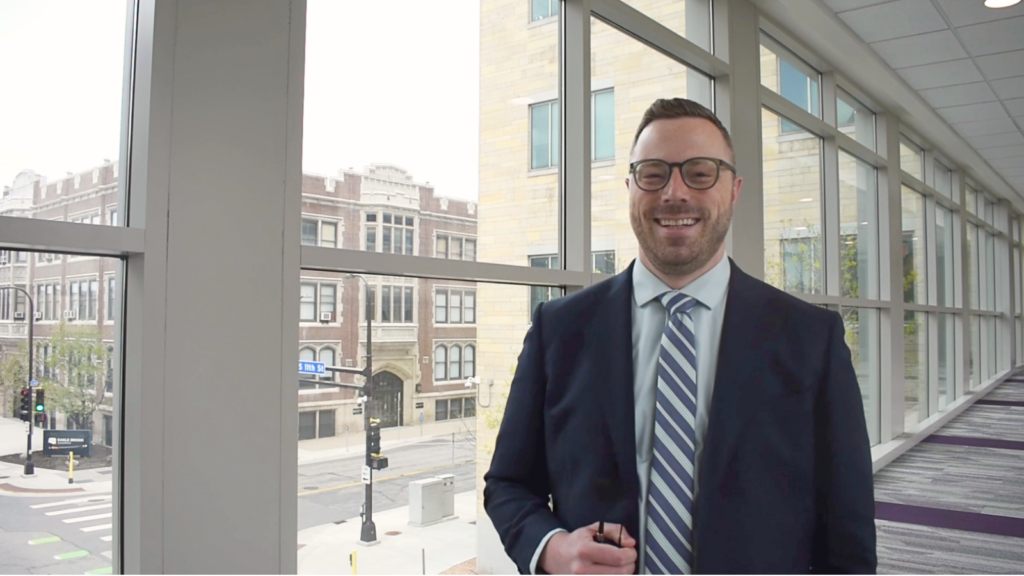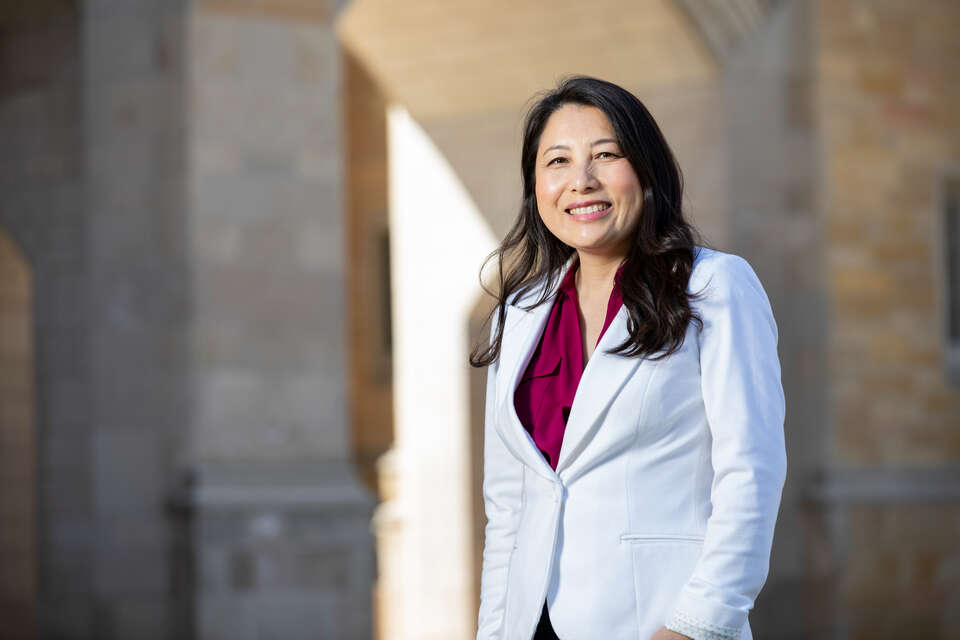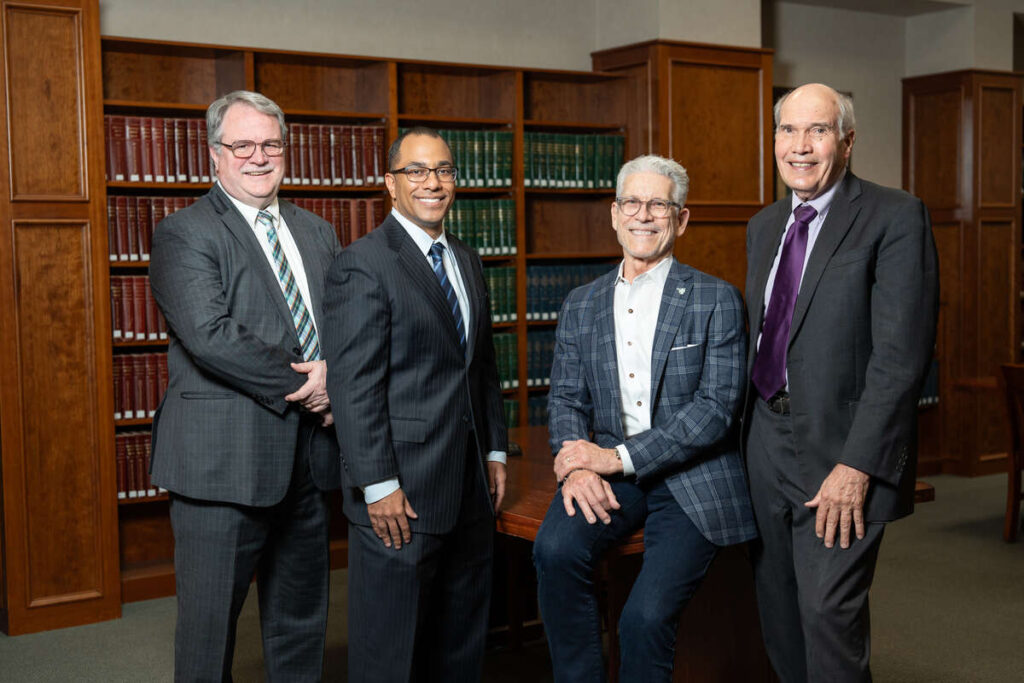St. Thomas officially has adopted a two-year residence requirement, beginning with first-year students in the fall of 2021.
The move comes after a years-long research and decision process, and reflects the belief the requirement will support student learning; connection to other students, staff and faculty; and a sense of belonging on campus. Currently, 92 percent of first-year students and 45 percent of second-year students live on campus. By increasing the number of students on campus, the university hopes to build a strong campus community and ensure students have more immediate access to academic and student support services, with the ultimate goal of stronger student engagement and academic achievement.
“I am just thrilled about it,” said Karen Lange ’14 EdD, vice president for student affairs. “We know that for students it will create a better sense of community on campus, create more connections, stronger friendships and closer proximities to campus resources like the library, student clubs and resources, the Center for Student Achievement and the Center for Well-Being.”
“This is really exciting. I’m more optimistic now than ever before that the families of the future are going to embrace this [requirement], so this is a necessary and great move for us,” said Aaron Macke, director of residence life. “It’s really about signaling to all our future Tommies that we believe in those first two years, the foundation of their experience, that living in a community together gives them the best chance for success moving forward. There is a genuine belief that living in community, learning in community, building comradery, energy, excitement, collegiality in two cohorts, is good for them and our university community.”
Several construction and renovation projects are underway and planned to support the transition to the new requirement, including the building of a new first-year residence hall, a new second-year residence hall, and renovations to Ireland, Dowling and Brady halls. No tuition dollars are being used to fund any of the construction and renovation projects.
An exemption process will be available for students and families requiring it.
Plans are also underway to raise funds to support equitable access for all students to the new and renovated residence halls.
“Financial considerations are at the forefront of the university’s plans to transition to the two-year requirement,” Lange said. “Ensuring equitable access for all students to both new and existing residence halls is the primary driver of developing plans to raise funds and provide necessary financial aid.”







